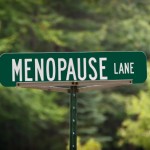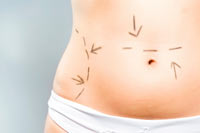Hypothyroidism in women: Symptoms checklist and dietary recommendations
 Hypothyroidism in women is a common condition in which the thyroid gland underproduces necessary thyroid hormones that help the body function. The thyroid is responsible for many functions, including metabolism and hair growth. Many hypothyroidism patients gain weight, for example, because their metabolism slows down.
Hypothyroidism in women is a common condition in which the thyroid gland underproduces necessary thyroid hormones that help the body function. The thyroid is responsible for many functions, including metabolism and hair growth. Many hypothyroidism patients gain weight, for example, because their metabolism slows down.
Women suffer from thyroid-related issues more often than men, and the reason for this is still unclear. Reproductive hormones may play a role, as there is an obvious difference in these between men and women. Furthermore, many women experience thyroid problems during hormonal changes like perimenopause, which further shows that differences in hormones may play a role in thyroid function.
As long as thyroid testing is timely, treating hypothyroidism is simple and effective, meaning you can start combatting the symptoms right away. Here is an outline of hypothyroidism symptoms in women, along with dietary recommendations that can help improve the thyroid.
Hypothyroidism symptoms in women: Checklist
Paying close attention to symptoms can prompt you to speak to your doctor about having your thyroid tested so that treatment can begin. Here is a list of the symptoms you should look for pointing to a problem with the thyroid.
- Severe fatigue, energy loss
- Weight gain, difficulty losing weight
- Depression, low mood
- Joint and muscle pain
- Headaches
- Dry, brittle nails
- Brittle hair, itchy scalp, and hair loss
- Irregular periods, PMS symptoms
- Breast milk formation
- Calcium metabolism difficulties
- Difficulty tolerating changes in temperature
- Constipation
- Excessive sleep
- Low libido
- Puffiness in face and extremities
- Hoarseness
- Bruising and clotting problems
- High LDL cholesterol – increased risk of heart disease
- Persistent cold sores, boils, and breakouts
- Tingling sensations in hands – similar to carpal tunnel syndrome
- Memory loss, fuzzy thinking, attention and concentration problems
- Slowness and slurred speech
Many of these symptoms can mimic other health conditions – even menopause itself – but it’s important to have your thyroid checked regardless to rule out any thyroid issues. Thyroid tests are quite clear so you will have a definite answer as to whether your thyroid is the source of your symptoms or something else.
Hypothyroidism and menopause
 Thyroid problems can present themselves as menopause, so it can be quite difficult to distinguish between the two, especially if you are at the age to experience menopause. The only way to know for sure if it’s menopause or hypothyroidism is to get tested and have your doctor check your TSH levels, thyroid hormone levels, and thyroid antibodies.
Thyroid problems can present themselves as menopause, so it can be quite difficult to distinguish between the two, especially if you are at the age to experience menopause. The only way to know for sure if it’s menopause or hypothyroidism is to get tested and have your doctor check your TSH levels, thyroid hormone levels, and thyroid antibodies.
Additionally, menopause can increase the risk of hypothyroidism. Hypothyroidism triggers during menopause include stress, nutrition, and hormonal changes. Furthermore, it is known that hypothyroidism is more common in older women than younger ones, often just around the time when menopause occurs, so there is a chance that you will often see both occurring together.
Hypothyroidism and pregnancy
Thyroid hormone production increases during pregnancy, as the fetus relies on these hormones for brain development. If a pregnant woman has hypothyroidism, there is a higher risk of complications in the baby as there may not be enough hormones to support healthy growth.
If you have been living with hypothyroidism prior to conceiving, as long as you remain on your treatment plan you can very well have a healthy pregnancy. If you develop hypothyroidism during pregnancy, starting thyroid treatment right away reduces the risk of complications.
Although it is not recommended that every women looking to conceive gets her thyroid checked, there are some women who are deemed at risk for the development of hypothyroidism and should undergo testing. This includes women with a family history of thyroid disease, type 1 diabetics, those who underwent radiation exposure on the head or neck, women who experienced multiple miscarriages, women with infertility issues, women who are obese, and women living in a iodine-deficient area.
Even after having your baby, your thyroid function should be routinely monitored to see if your treatment is still working effectively.
Hypothyroidism dietary recommendations
 Diet can go a long way to support a healthy thyroid. Iodine-rich and selenium-rich foods are best for hypothyroidism. Iodine is required for the normal functioning of the thyroid, so when the thyroid is underperforming, boosting iodine can help. Iodine-rich foods may aid in symptoms associated with hypothyroidism and assist your metabolism. Selenium is also highly beneficial for your thyroid as it aids in the production of hormones, so your thyroid doesn’t have to work as hard. Following a hypothyroidism diet can then help you support a healthy thyroid. Here are some of the main foods you should incorporate into your hypothyroidism meal plan:
Diet can go a long way to support a healthy thyroid. Iodine-rich and selenium-rich foods are best for hypothyroidism. Iodine is required for the normal functioning of the thyroid, so when the thyroid is underperforming, boosting iodine can help. Iodine-rich foods may aid in symptoms associated with hypothyroidism and assist your metabolism. Selenium is also highly beneficial for your thyroid as it aids in the production of hormones, so your thyroid doesn’t have to work as hard. Following a hypothyroidism diet can then help you support a healthy thyroid. Here are some of the main foods you should incorporate into your hypothyroidism meal plan:
Iodine-rich foods for hypothyroidism
- Iodized salt
- Seaweeds and seafood
- Salt water fish
- Sushi
- Nori rolls
- Celtic sea salt
Selenium-rich foods for hypothyroidism
- Meat
- Chicken
- Salmon
- Tuna
- Whole unrefined grains
- Brazil nuts
- Dairy products
- Garlic
- Onions
On the other hand, there are foods you should avoid because of their negative impact on thyroid health. These include soy, cruciferous vegetables, gluten, fatty foods, sugary foods, excess fiber, coffee, and alcohol.
Along with your regular treatment plan set out by your doctor, following a hypothyroidism diet can further promote a healthy thyroid and reduce thyroid-related complications.
Hypothyroidism vs. menopause: differences in symptoms, causes, and treatment
Hypothyroidism and menopause may be two different conditions, but they do have a connection, thus women may want to have a better understanding of these two health situations, including the symptoms, causes, and possible treatments. Continue reading…
-
Where Healing Really Lives - Not Always Where You Think
Ive been working with women and their bodies and their eating stuff
-
Double Chin Exercise For A Leaner Face
Before we get into the solutions for red
-
Green Tea Weight Loss - Start Using It
There are several weight loss programs and we need to take the one tha
-
When Dieting Should You Weigh Yourself Every Day
How to Break the Weighing HabitFace it, if you weigh yourself more tha
-
Look On Aisle 5
Have you ever stopped to calculate how much time you spend in each sec
-
Easy Methods to Achieve your Weight Reduction Goal with Green Coffee Bean Extract
There are times in life when the prospect of slimming down seems impos
- DON'T MISS
- Beware: You Can Still Overeat with Healthy or Natural Foods
- Laser Liposuction - Newer Body, Less Pain
- Four Bad Foods That Are Actually Good for You
- Love Handles...less Handles...more Love...
- Raspberry Ketones Diet Supplements – Top Rules for Customers
- Tips To Reach Your Fitness Goals
- Seven Very easy Steps To Healthful Weight Loss
- Lower cholesterol Naturally by Simple Nutritional Supplements
- Tooth Whitening – Assisting You To Acquire That Beautiful and Whiter Smile
- Your Words Affect Your Weight Loss Stop The Struggle




